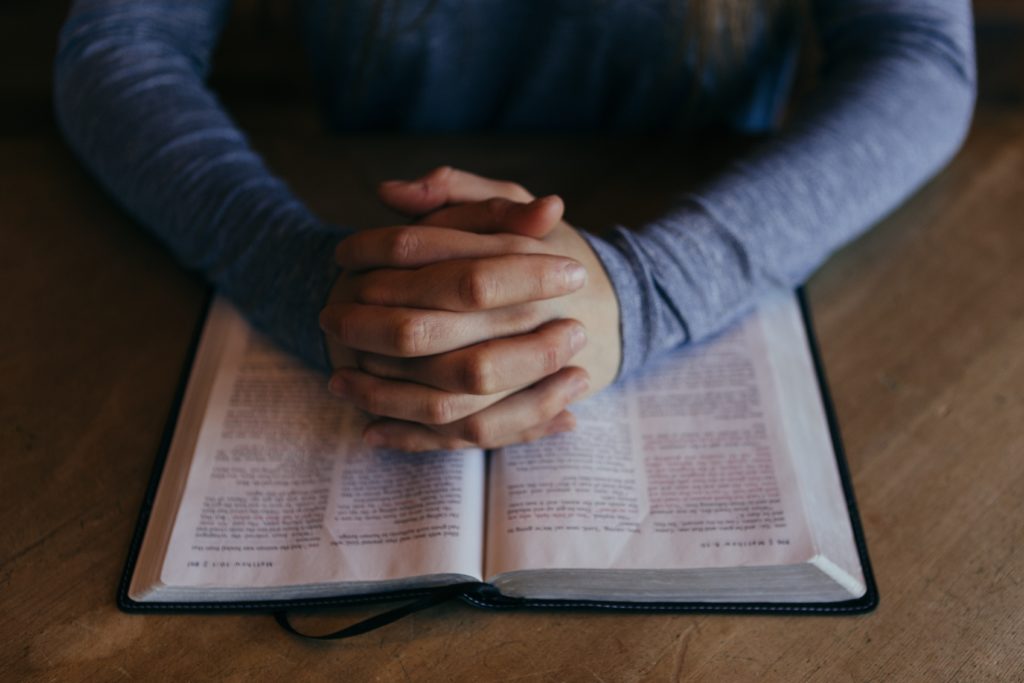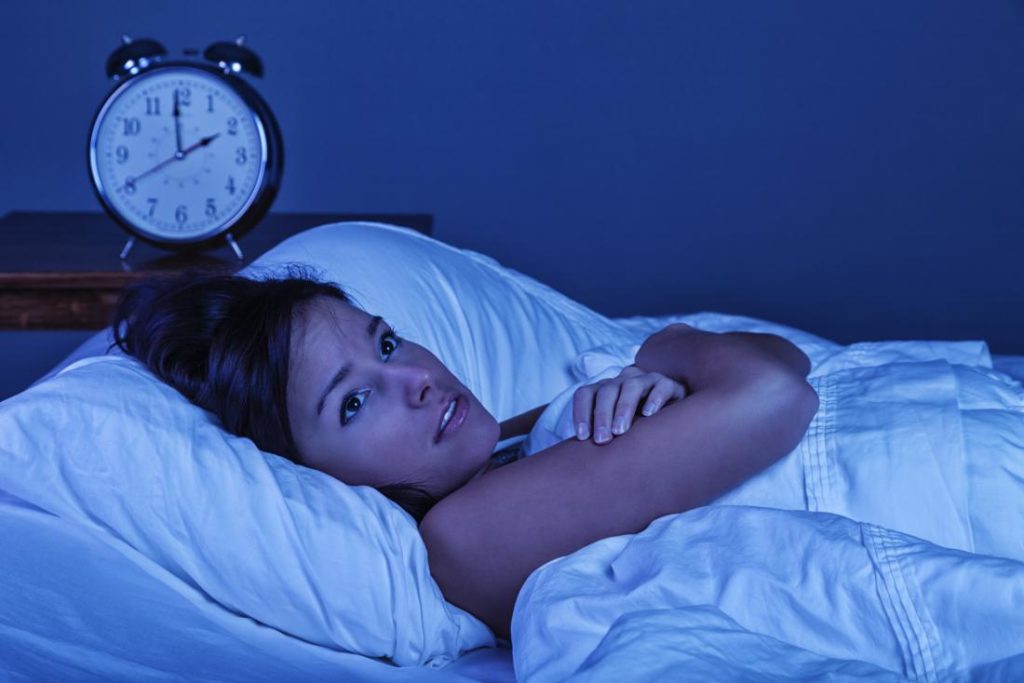Are you having difficulty falling asleep? Or maybe you are unable to get adequate sleep. These are signs of insomnia. This sleep disorder is characterized by failure to get quality sleep.1 You wake up early and cannot return to sleep.2
It varies from person to person, and also it can be short term or long term.3,4,5. The amount of sleep varies among individuals; adults need at least 7 hours of sleep every night.
A 2019 study shows that shorter sleep duration increases the risk of developing high blood pressure.
Insomnia will rob you of your health, mood, and strength to be active during your working hours.6 Consider natural ways to Improve your night’s sleep and avoid sleep disturbances.
You may handle insomnia at home using the following natural remedies:
#1: Chamomile tea

Chamomile is a folk remedy for insomnia, according to a meta-analysis study in 2015.
A randomized controlled trial suggests that chamomile tea can be used as a supplementary approach to alleviate depression and sleep quality problems in postpartum women.7
A 2017 study shows that chamomile extract helps reduce insomnia symptoms and enhances better sleep in older people having trouble falling asleep.
Insomnia medically reviewed study done in 2016 found that chamomile has a natural antidepressant that may help reduce anxiety and depression, improving sleep.
#2: Valerian root

A 2020 systematic review and meta-analysis study found valerian is a safe and effective herb for promoting sleep and preventing disorders.
Another randomized study shows that valerian root extract can improve sleep quality and reduce sleep dirsturbances.8
The best form of this natural remedy for insomnia is to make herbal tea from the root. Taking valerian herbal tea in the evening will help you sleep
#3: Tart cherry juice
2010 peer reviewed studies found that tart cherry juice has the same effect on insomnia as valerian root extract.
There was relief in symptoms for individuals with primary insomnia in the study, and the juice is medically accepted to help treat insomnia.
More research should be done on this suggestion to affirm these findings.
#4: Follow the 8 natural laws of health
These 8 natural remedies will help your overall health. Sleep disorders may be due to other illnesses that you might not know.
The natural remedies will help you get better sleep and a healthier body, improving sleep.
#5: Relaxation techniques
A 2012 study shows that relaxation techniques like deep breathing exercises and other mindfulness meditation can improve sleep and help beat insomnia in adults.
A 2018 study affirms the efficacy of combining relaxation response with good sleep hygiene to beat insomnia and help you sleep.
Other relaxation techniques may help with muscle tension and promote feelings of sleep.
#6: Make peace with God

The Bible says, “…that He giveth His beloved sleep” (Psalm 127:2). Sleep is a good thing, and He says that “…no good thing will he withhold from them that walk uprightly” (Psalm 84:11). So, ask God to give you sleep. He promised that “..If we ask, we shall receive..” (Mathew 7:7).
Making peace with God may help you overcome several psychological problems that cause you to lack sleep.
Making peace with God is the best of all the natural sleep aids you should consider to remedy insomnia.
#7: Hydrotherapy is the most readily available remedy for insomnia
A hot foot bath will relieve your body aches and fatigue. It will relax your body and prepare you for quality sleep. I prefer doing it in the evening.
If you can, you may incorporate a hot bath. Make sure you hydrate correctly during these activities. This treatment will give you sound and healthy sleep.
A hot shower or warm bath may be an alternative treatment for this remedy to help regulate body temperature. It also reduces the incidences of hot flashes at night when you sleep.
#8: Magnesium supplementation of your diet to curb insomnia

A 2016 study shows that magnesium is known for progressive muscle relaxation and its property to relieve stress. In addition, it can help you get good sleep and overcome insomnia.
The daily requirement for magnesium is 400mg and 300mg for men and women, respectively9. You can get it from taking melon juices, whole grain, nuts and seeds, dry beans, and other plants.
If you cannot get natural magnesium in food, you can use magnesium supplements that several medical associations prove to help sleep problems.10
Taking magnesium doses as directed by wellness professionals will help you sleep.
Daily requirements of magnesium in mg9
| Age | Male | Female |
| 14–18 years | 410 mg | 360 mg |
| 19–30 years | 400 mg | 310 mg |
| 31–50 years | 420 mg | 320 mg |
| 51+ years | 420 mg | 320 mg |
#9: Lavender oil
The lavender essential oil can control your mood,11promote sleep and reduce pain in the body. I prefer natural oil.
Don’t go for the capsules. Instead, take 20-80mg per day, and you will solve the insomnia problems and offer a better night’s sleep.12
#10: Body massage before bedtime can reduce insomnia
According to medically reviewed research, massage is best for the relaxation of the body. It also reduces anxiety and stress.12
In addition, having a massage in the evening will help improve the quality of your sleep. You may use olive oil for this exercise13.
#11: Thoughtful meditation
Mindful meditation involves bringing every thought into inspection. Making peace with your conscience and God and having a conscience void of offense is a remedy.
Research shows that meditation has been used to cure insomnia in countless individuals.14These relaxation techniques vary from one community to the other you may adopt any that will help you improve sleep quality.
#12: Practice good sleep hygiene
Sleep hygiene involves your behavior before and on the bed and the environment you sleep in.15
You may use an insomnia sleep aid, but you will have trouble sleeping if you don’t ensure healthy practices. Avoid caffeine,16alcohol, and messy bedroom.
Ensure your bedroom environment is conducive to sleeping. Use humidifiers if the room is dry and improve ventilation for sufficient air circulation.
Moreover, get a comfortable bed and a mattress with clean, suitable beddings for a good night’s sleep.
Types of insomnia
Adjustment insomnia
This type of insomnia lasts for a few days but less than a month.17 It’s also known as acute or primary insomnia. The primary causes include changes in daily routine and environment.18Other causes of acute insomnia include:
- Social issues like difficulty in a relationship.
- Jet lag.
- Schedule deadlines or exams.
- Extreme temperature changes.
- Unfamiliarity or new artificial light.
- Movement to a new place.
- Certain medications.
- Allergy and other health issues.
Chronic insomnia
Insomnia is often occasional or transient. However, in some cases, it may be a long-term condition. You have chronic insomnia when you experience difficulty falling asleep three days a week for a month or two.19
There are two types of this condition, namely primary and secondary insomnia. For primary (idiopathic), there is no medically reviewed specific cause attached to it.20
Secondary chronic insomnia occurrence involves several underlying health conditions.21 which include:
- Psychological conditions like anxiety, schizophrenia, bipolar disorder, and depression.
- Neurological conditions like chronic pain and Parkinson’s disease22
- Medications like hormonal medications, respiratory medications, blood pressure drugs, and chemotherapy.23,24,25
- Stimulants like nicotine and caffeine26
- Lifestyle factors like irregularity in sleeping time, constant movements, and irregular daytime naps.
Onset insomnia
Onset insomnia is the trouble in initiating sleep. It can also be short-term or long-term. Common insomnia symptoms include depression, changes in mood, loss of libido, and irritability.27
Maintenance insomnia
Medical conditions cause maintenance insomnia. It’s characterized by difficulty falling asleep or waking up too early and an inability to sleep.28,29
It’s caused by depression, stress, and other psychological conditions. Other causes include acid reflux, chronic pain, and allergies.30
Behavioral insomnia in childhood
BIC is common in children, and poor sleep behaviors commonly cause it.31 It may be caused by using a cell phone on the bed or watching TV in the bedroom. BIC may be caused by a refusal to go and sleep in children or going to bed late, affecting their sleep quality.32
Treatments for insomnia
A cure for insomnia involves a combination of treatment modalities. You should combine three ways to treat insomnia for the best results.
Lifestyle changes
People with insomnia should adopt lifestyle changes to regain sleep quality.33 These include:
- Removal of caffeine-containing beverages from the diet
- Avoid alcoholic drinks
- Moderate physical exercise early in the morning can promote sleep.
- Eat temperately and moderately, more so in the evening. Don’t watch TV or your cell phone in bed.
- Listen to some soft music that yields mindfulness meditation and improves mood outcomes.34,35,36In some instances, you may use a white noise machine.
Cognitive behavioral therapy
Several behaviors may improve your sleep quality. These include:
Stimuli-control therapy
Do all your activities outside of your bedroom outside bedroom or bed. The bed should be exclusively associated with sleeping alone. You can cultivate this by only being there when it’s time to sleep. If you fail to sleep within 20 minutes, get up and do other activities until you feel tired.
Sleep restriction
It would be best if you did not spend a lot of time sleeping. You should limit the time you sleep and avoid naps all through the day.
Relaxation
Relaxation therapy involves all measures to enhance body relaxation to reduce anxiety and stress. You may use massage or alternate hot and cold baths.
Sitting quietly in the evening hours may also help you achieve mental peace for better sleep at night.37,38,39,40
Light therapy
Exposure to bright natural light during the day will enhance the synthesis of melatonin which help you more than melatonin supplements and other the counter medications for sleep.41,42,43
Light therapy also involves avoiding blue light at night for a few hours to bedtime.44,45Using light therapy during the day and at night, making your bedroom dark, will help you sleep effectively.
Reduce stress
Stress will not allow you to have a natural sleep. Stress robs you of the night’s rest as the mind cannot settle for quality sleep.46,47
Use melatonin sleep medications
Medically reviewed studies show that taking 5 mg of melatonin within 30 minutes to two hours before bedtime can increase sleep quality.48,49
Melatonin is the sleep hormone sufficient amount in the body that will help you stay asleep. It also enables you to maintain a deep sleep.50,51
Most people prefer these quick fixes to get rid of any disease condition. But ensure you talk to your doctor before taking any medicine.
Other prescription sleep aids may help improve sleep quality, but you should prefer natural sleep remedies.
How do doctors treat insomnia?
There is no specific sleep medicine that is offered over the counter. However, you may take sleeping pills to help you catch some sleep, but they are not ideal for sleep disturbances with several causes.
Few doctors recommend using home remedies to cure insomnia but prescribe sedating drugs like antidepressants, hypnotics, and antihistamines.
Health and wellness professionals recommend diagnosis before sleep medications as the problem may be due to another health condition unknown to you.
Experts recommend behavioral changes because long-term use of these sleeping pills will result in other issues in your body.
Common causes of insomnia
In the causes of Insomnia, you must consider two facts. First, it may be the primary problem or an indicator of the underlying condition you’ve not realized.
Acute Insomnia may be caused by the effects of the day’s activities or news of an event. But chronic insomnia is caused by the following:
Poor sleep habits
Going to bed at different times every night is one of the poor sleep habits. These practices can be listening to the radio and booming music on the bed. In some cases, it may be an unconducive environment.
Stuffy, ill-ventilated rooms, untidy beddings, and so forth. They make the sleeping area uncomfortable hence you can’t get sufficient sleep.
Another habit is taking naps during the day. It is healthy to have power naps once in a while to help balance sleep debt. But, careless naps after meals will inevitably ruin your sleep.
Carrying your phone and tablet or mounting a TV set in your bedroom is another poor sleeping habit. You won’t fall asleep faster if you keep your eye on any screen within two hours of bed.
Taking late supper
A 2021 research on insomnia found that supper timing can influence your sleep.
Supper should be taken at least three hours before bed. It helps in the completion of digestion before you retire to bed.
When you go to bed with your stomach full, digestion will stop after you fall asleep. This early fermentation of food in the gut leads to the formation of the tryptamine component.
These amino acids tend to mimic neurotransmitters, causing hallucinations and nightmares that rob you of quality sleep or feel awake in your sleep.
In addition, late supper results in the backflow of acids to the esophagus. As a result, the heartburn sensation may not allow you to sleep.
Depression and Stress
This mental disorder caused by emotional tension is the primary cause of chronic Insomnia. It may be caused by losing a loved one, family issues, lack of finances, and pressure at your workplace.
Maybe you are a student, and schoolwork is heaped on you, and you can’t see when to finish them. These factors and other stressors can rob you of sleep or make it hard to maintain sleep or fall asleep faster.
Travelling and Schedules
Humans have an internal circadian rhythm that helps regulate sleeping and waking. Therefore, when you move from one time zone to another, you may experience jet lag.
Waking up at different times also can cause Insomnia. Moreover, having a lot of daily activities and routines may cause you to disrupt sleep sequence.
In most cases, the thought of daily engagements may make it hard for you to fall asleep.
Day-night shift jobs
You can never have a regular sleep system when you work on shifts. Some days you sleep during the day and others at night. As a result, your rhythm will be altered, and you can’t attain sufficient sleep.
Sin
Sin is the transgression of God’s law. The Bible says that there is no peace unto the wicked. (Isaiah:48:22).
Another passage says, “Come unto me all that labor and are heavy laden, and I will give you rest” (Matt 11:28-30).
If there is anything that you are doing against nature and God, you can’t have rest.
Consumption of stimulants like nicotine, caffeine, and alcohol
If you take coffee, tea, and alcoholic drinks, you will develop Insomnia. These substances tend to disorient your neurotransmitters and cause you to hallucinate.
When the concentration in the body reduces, you feel depressed and unable to catch sleep. Alcohol will make you sleep when you are drunk, only to wake up late and never sleep again.
Even the colas and carbonated drinks branded as “soft drinks” are mood-changing because of the artificial sweeteners.
Drugs

You should know that several drugs have side effects. They are chemicals made to change the position and shape of the disease. Drug interactions with food or other drugs in your system may cause sleep disorders.
But that’s aside, medications for hypertension and asthmatic patients contain stimulants that affect your sleep. Other drugs for allergy and sliming are related to disruption of sleep.
2015 clinical trials pose that even insomnia drugs and sleeping pills have residue effects on your overall integrative health. And may cause sleeping problems in the future.
Mental disorders
Some mental conditions such as post-traumatic stress disorder may cause insomnia. Depression due to anxiety may result in early awakening.
Disorders related to sleep
If you’re suffering from sleep apnea, you may periodically experience breathing difficulties, and it will interrupt your sleep. Unpleasant sensation in the legs due to restless leg syndrome disrupts sleep too.
Aging
A 2011 sleep research shows that sleep quality and duration reduce with an increase in age.
Several factors will increase the chances of insomnia with an increase in age. First, responsibility and care for children will deprive older adults of sleep.
Second, as people grow old, they tend to use many drugs, which affect their sleep. Third, they experience changes in activities, like physical exercise hence unable to get good sleep.
Finally, most individuals above 55 years have chronic infections that subject them to pain that takes away their sleep.
Symptoms of Insomnia that don’t require clinical examination
- Tiredness or sleepiness during the day
- Frequent waking up during the night
- Waking up too early
- Difficulties in falling asleep
- Retarded memory and reduced attention span
- Tiredness when you wake up
- Anxiety and depression
- Sluggishness and fatigue
Some risk factors of Insomnia
Physiological changes in the body
Hormonal changes in women during menstruation circles and menopause can lead to Insomnia.
Living above 55 years
Cases of Insomnia increase with age. The older you get, the more you are at risk of developing Insomnia. Changes in sleep patterns and health may contribute to sleep difficulties in older people.
Irregular schedule
Frequent changes in your sleep pattern will result in sleep disorders.
Heart disease
People with cardiovascular problems often develop habits of sleep that share insomnia symptoms. Heart rate changes can influence rest.
Complications of Insomnia
Getting quality sleep is as essential as good nutrition. Your sleep is very crucial for your brain functions. You fail to attain it, and your whole system is affected. Individuals who sleep well tend to have a quality life than those with sleep disorders.
Here are the complications that you will have if you develop Insomnia52,53:
- Reduced performance efficiency
- Anxiety, depression, and other mental disorders
- Reduced reaction time to an emergency.
- Irritable and crabby
- Increased risk of developing obesity and high blood pressure
- Difficulties in focusing
- Worsen fever symptoms
Wrap up
Sleeping pills may offer a quick solution, but you need more than a quick fix to maintain a normal sleep cycle and restful sleep.
In considering the issue of Insomnia, you now have sufficient knowledge to handle this disorder from cause to effect. All the information here is obtained from peer-reviewed journals and healthline media and should not override the advice from your doctor.
The use of remedies for insomnia without taking away the cause will only create further complications. Instead, consider following all the prevention measures and rectifying your lifestyle.
Consider visiting wellness professionals for another physical exam if the symptoms persist.


Very Helpful. Thank you.
Thank you so much for insomnia information. I hope with all those points I will be able to sleep from now, May God bless you.
Thanks for this document it’s of great help to me. Be blessed, so much grateful
Insightful piece. I enjoyed reading it!!
Very helpful
Great work!!! Loved it.
Wow such wonderful I really enjoy it and recommend it to others
Pingback: 10 Natural Remedies To Boost Your Immune System – GILEAD THERAPY
Pingback: 15 Health Improving Habits That Are Life Changing | GILEAD THERAPY
Pingback: Natural remedies for hormonal imbalance in females | GILEAD THERAPY
Pingback: What are the 8 natural remedies? | GILEAD THERAPY
Pingback: What are the 13 positive lifestyle choices? | GILEAD THERAPY
Pingback: Depression: Causes, Symptoms, Prevention and Curative Remedies | GILEAD THERAPY
Pingback: What are the 6 aspects of wellbeing? | GILEAD THERAPY
Pingback: 14 Home remedies for high blood pressure | GILEAD THERAPY
Pingback: 11 Easy Steps to a Healthier Heart | GILEAD THERAPY
Pingback: How to Live Longer: 49 ways to increase longevity | GILEAD THERAPY
Pingback: What Triggers Migraines? 12 Science Backed Causes | GILEAD THERAPY